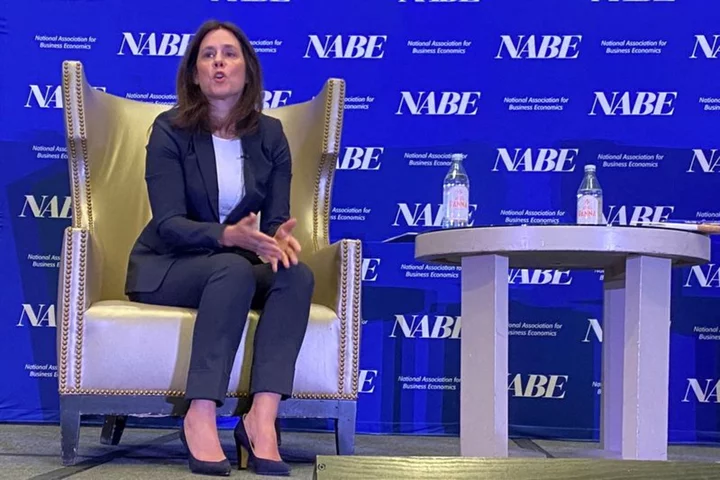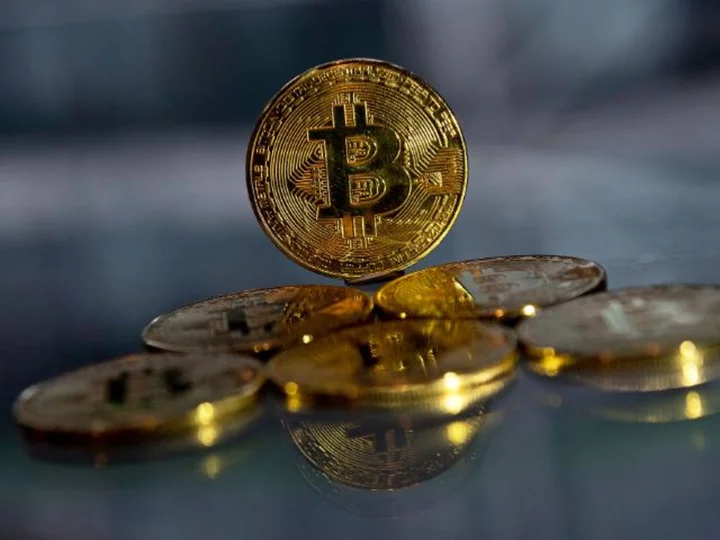Dallas Federal Reserve Bank President Lorie Logan on Friday defended the U.S. central bank's "ample reserves" approach to monetary policy implementation, even as she outlined a number of ways that both the Fed and banks could further shrink liquidity risks in the financial system.
Recent episodes of liquidity strains, like that at the start of the pandemic notwithstanding, the Fed's approach does reduce liquidity by removing incentives for banks to economize on their holdings of reserves at the central bank, which are by any measure the most liquid of any assets, Logan said in remarks prepared for delivery to a European Central Bank conference in Frankfurt.
But the approach does not eliminate liquidity risk, she said, adding that "all players have work left to do to fully gain the benefits of these systems."
Logan, whose years of work managing the Fed's bond portfolio in her prior job at the New York Fed mean that her views on the subject of liquidity will garner attention, did not touch on her economic or monetary policy outlook in her prepared remarks.
But she did go through a number of ways that banks, the Fed and other market participants could minimize risks of liquidity strains, including requiring banks to maintain access to the Fed's emergency lending facility, known as the discount window, and to test that access regularly.
The Fed bought up trillions of dollars of Treasuries and mortgage-backed securities in March 2020 and afterwards to stabilize the financial system and to protect the economy from a disastrous collapse.
The Fed is now in the process of reducing those holdings, and Logan said it's important to continue doing so.
"Our primary economic challenge is not a deep recession but rather too-high inflation," Logan said. "In this environment, it is important to remove economic stimulus by returning our assets to the level needed to supply ample -- not abundant -- reserves."
(Reporting by Ann Saphir; Editing by Leslie Adler)









